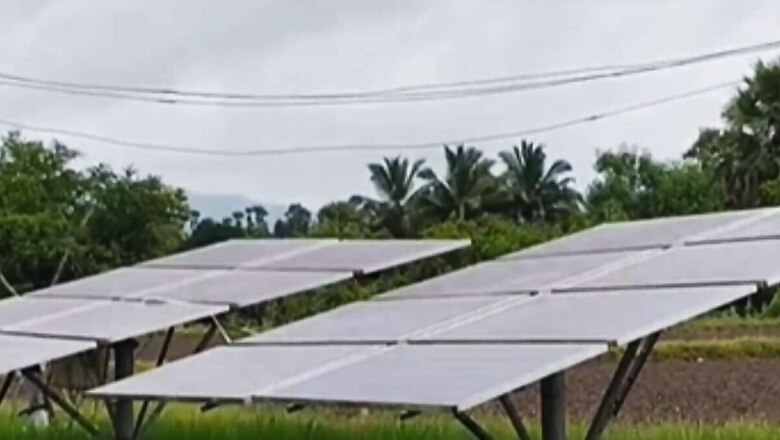
views
Farmers in the upland areas of West Godavari district of Andhra Pradesh are increasingly using solar power to supply water to their fields. They find it more reliable than conventional electricity, which can lead to lower crop yields due to its unpredictability. One farmer named Srinivas explained to Local 18 why solar power is beneficial and the advantages it offers. Agriculture’s reliance on rainfall creates a constant challenge due to the lack of dependable irrigation facilities, which in turn affects crop yields and farmer incomes. Solar-powered water pumps have become a sustainable solution, offering a consistent water supply. With falling costs and government subsidies, these pumps are becoming popular among farmers in West Godavari’s upland areas.
These pumps operate using electricity generated from solar panels, eliminating the need for diesel or grid power. This leads to significant cost savings, as farmers can avoid expenses on fuel or electricity, resulting in annual savings of Rs 15,000-20,000, which directly boosts their income. By ensuring a steady water supply, solar pumps improve crop yields, increase cropping intensity, and enhance overall agricultural productivity. Additionally, solar pumps give farmers the confidence to irrigate their entire land, leading to better irrigation coverage. This improved irrigation can increase crop yields by 30-80 percent. Solar pumps also support the cultivation of multiple crops in a year, allowing farmers to grow 2-3 crops on the same land, thereby increasing seasonal production.
In agency and hilly regions, a significant transformation is taking place in the agricultural sector as farmers embrace solar power to enhance their farming practices. Traditionally, these areas faced challenges like limited access to electricity and water resources, which restricted the number of crops that could be cultivated each year. With the adoption of solar power, these limitations are being overcome, allowing farmers to achieve higher yields and cultivate up to three crops annually.
The use of solar power has been particularly beneficial in promoting the cultivation of a diverse range of crops, including vegetables, fruits, and other commercially viable produce. Solar-powered irrigation systems have enabled farmers to maintain a consistent water supply, even in remote and elevated areas, where traditional irrigation methods were less effective. This consistent water supply has not only improved crop quality but also expanded the types of crops that can be grown.




















Comments
0 comment